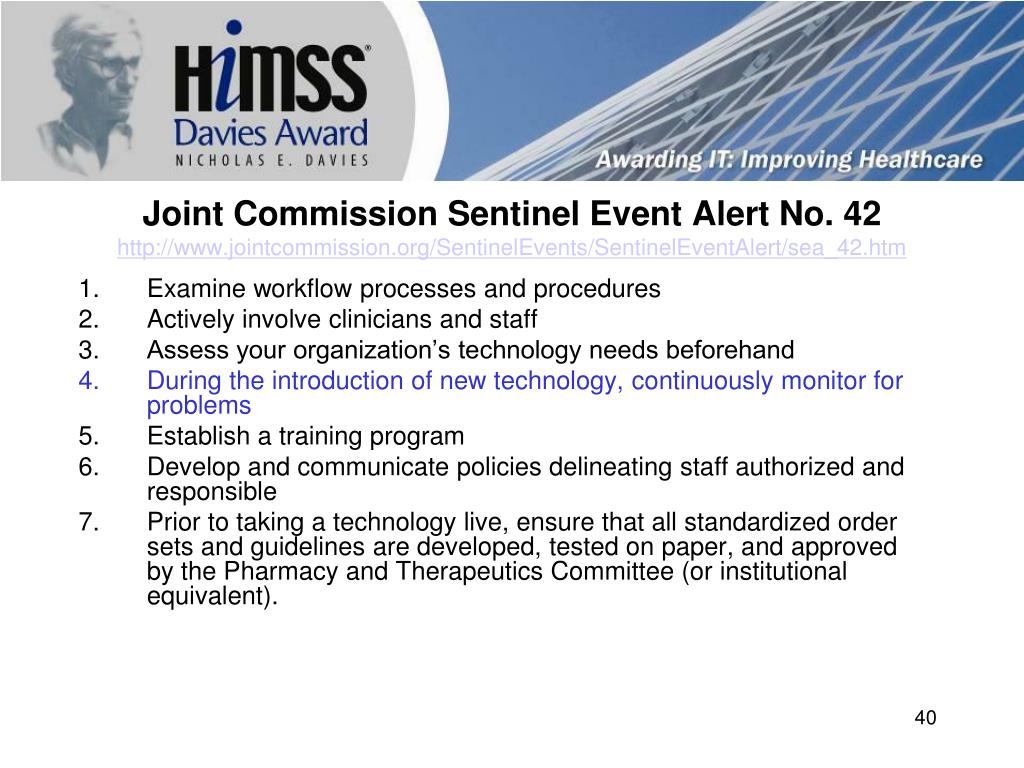

Researchers from the Harvard Medical Practice To only 38.1% of those who never been in an ICU (The Joint Commission Guide to Who had been in an ICU during their stay had a serious adverse event as opposed According to one study, 54.8% of patients Patients' natural resilience and their ability to defend themselves from theĬonsequences of human error, patients in the ICU may be at a higher risk ofĮxperiencing a sentinel or adverse event. Because ICU work is intense, with many interactions occurringīetween patient and caregiver and as the nature of critical illness reduces both The basis of every sentinel event policy.Ī blame-free culture is especially important in the intensiveĬare unit (ICU). Total system failure rather than individual practitioners' failures, should be A blame-freeĬulture, recognising that sentinel and adverse events are often the result of Occurrence of sentinel events, but should also help healthcare organisationsĬreate a culture committed to identifying errors before they occur as well asīeing comfortable reporting errors if and when they happen. Outcome such a “near miss” falls within the scope of the definition of anĪdhering to a sentinel event policy should not only reduce the Outcome but for which a recurrence carries a significant chance of a serious adverse Organisation, and a near miss is any process variation that did not affect an Unanticipated, undesirable, or potentially dangerous occurrence in a healthcare Such an event is called sentinel because it signals a need for an immediate Underlying condition or wrong-site, wrong-procedure, wrong-patient surgery.

Of function unrelated to the natural course of the patient's illness or JCI defines a sentinel event as an unanticipated death or loss Of their own, as well as establishing a process to address a sentinel event (see Figure 1) as a baseline for compliance and develop a sentinel event policy Requiring that all JCI-accredited hospitals heed JCI's Sentinel Event Policy Undesirable events with varying degrees of serious outcomes.
#JOINT COMMISSION FALLS SENTINEL EVENT FULL#
Joint Commission International (JCI) introduced the international healthcareĬommunity to the term sentinel event, which when combined with the alreadyįamiliar terms adverse event and near miss, describe the full range of With the release of the Joint Commission InternationalĪccreditation Standards for Hospitals, 3rd edition, US-based accreditation body By conducting intensive system analysis, revising processes found toĬause or contribute to these events, and monitoring the effectiveness of anyĬhanges, quality hospitals create a safer patient environment following an In a way that significantly reduces the risk of the event occurring in theįuture. Organisations from lesser ones is whether they respond to sentinel and adverse events Limited to lower quality organisations excellent healthcare organisations canĪnd do experience undesirable events. Which are called sentinel events, the less severe, adverse events-are not

Too common in hospitals throughout the world. Preventable medical errors threaten patient safety and are all


 0 kommentar(er)
0 kommentar(er)
